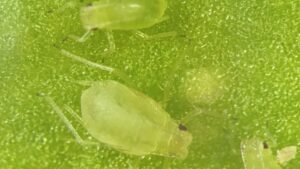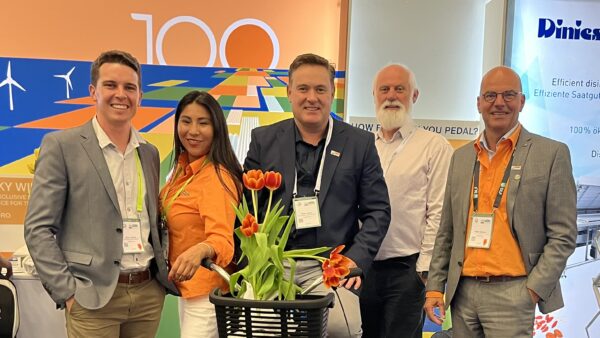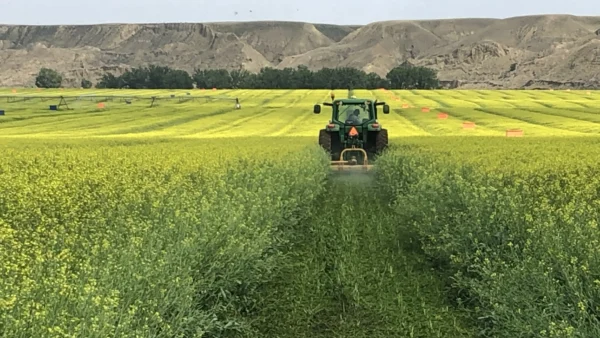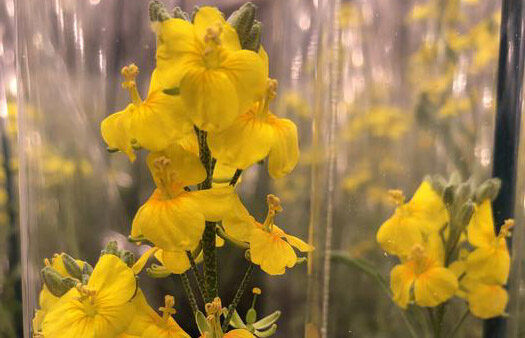Dear readers of European Seed,
Climate change is a threat to many aspects of human life. Without any mitigation, the planet will experience dangerous warming, with yield-destroying droughts; rising sea levels that wash away islands and invading coastal areas; and most certainly the extinction of many species. And it is a well-accepted fact that world temperatures are rising because of human activity.
In sum, Climate Change is all around us.
For example, I see it in my garden. As a result of warmer-than- normal spring temperatures, some of my fruit trees are flowering earlier. And of course, there is a later cold spell that, on occasion, freezes all flowers on the tree and significantly reduces the fruit I can harvest in fall. That makes me think that we should perhaps breed for fruit tree varieties that wait a bit longer and flower a bit later, but that’s a topic for a different article.
In this issue of European Seed, we would like to put the spotlight on the European seed companies that are working hard and making great efforts to mitigate climate change.
For those who have been following the plant breeding sector, you know this group is already doing a lot to combat this challenge with new plant varieties. The breeding companies develop new plants with a higher tolerance to drought, heat, cold, salt, and other abiotic stresses caused by climate change. The new resistances matter a lot in the face of a changing climate.
One result of climate change is pathogens appearing in areas where they have never been seen before. Pests and diseases that normally thrive in warmer areas are moving north in Europe and are threatening harvest in these new regions.
We need a continuous stream of new and better-adapted plant varieties, otherwise there may not be a whole lot to harvest at the end of the season.
To get a better picture of what European seed companies are doing to mitigate climate change, we asked all national seed associations in Europe, and many other peers in the European seed sector, to send us their nominations of companies that are embodying that effort.
The reactions were overwhelming.
It showed me that many companies are, in fact, already doing a lot. Not just through their new varieties but also in the fields of renewable energy, recycling, and much more.
As in previous years, you will again find a few lines of text per company, explaining in a nutshell what their key contribution(s) have been in the past and why they were chosen on this prestigious list. Please note, most companies sent in much more text on their activities than we could feature in this article. It showed me that companies are well-aware of the threat and are taking an active role in doing their part to reduce it.
We hope you enjoy the list, and as usual, we very much welcome and look forward to any feedback you wish to share. And for those who are not yet that active in climate change mitigation, feel free to use the activities of these 20 companies as an example.
Marcel Bruins
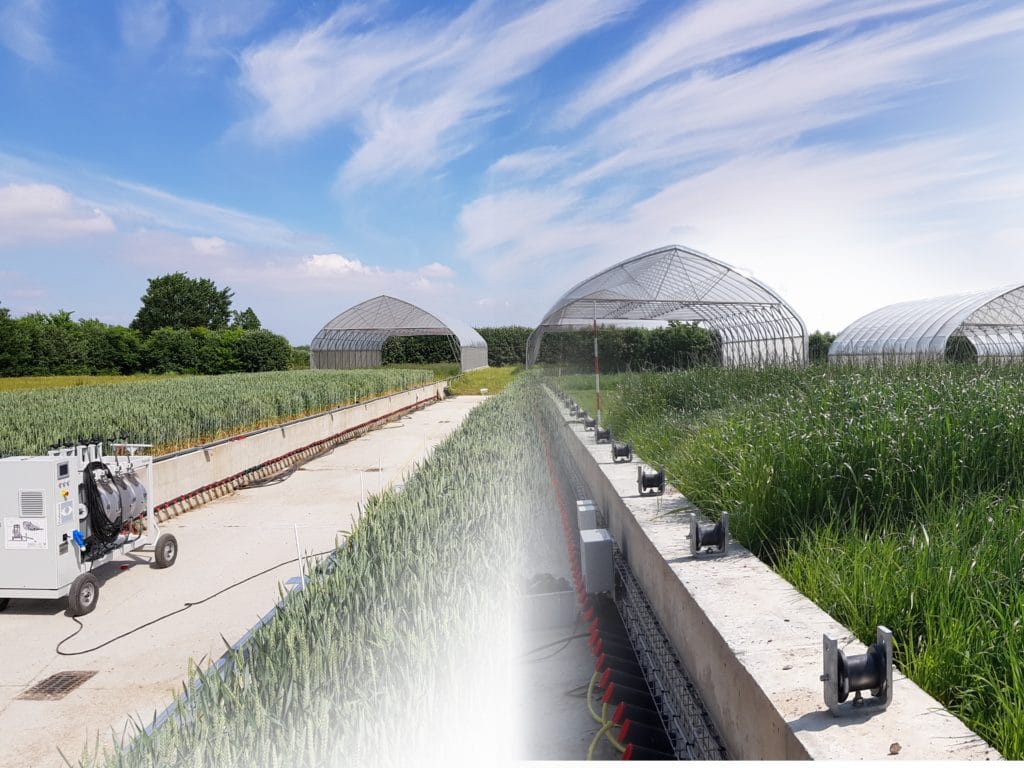
Growing Carbon Into the Soil and Saving Crop Losses
DLF Seeds A/S, Denmark
Years before the climate agenda hit the breeding companies, DLF took a bold move in gathering breeders and scientists from public and private organizations in pursuit of advancing crop breeding for future climates.
With this consortium, DLF built the world’s largest open-field root screening facility, RadiMax, which can test up to 600 plant lines simultaneously in its four 10×40 m V-shaped pits. All of them are equipped with a unique irrigation system, designed by computer simulation to generate the most efficient selection system for deep root- ing. In support for this selection, more than three kilometres of plexiglass tubes provide visual access for multispectral cameras imaging the root profiles of each single line. For the first time it has become possible to uncover the hidden world of root growth at
a breeding scale and relate it to the most pertinent climate threat: Drought! The first screenings were conducted in 2016 and based on the results DLF has been able to supply forage and turf customers with varieties, having verified deep rooting and superior drought stress tolerance.
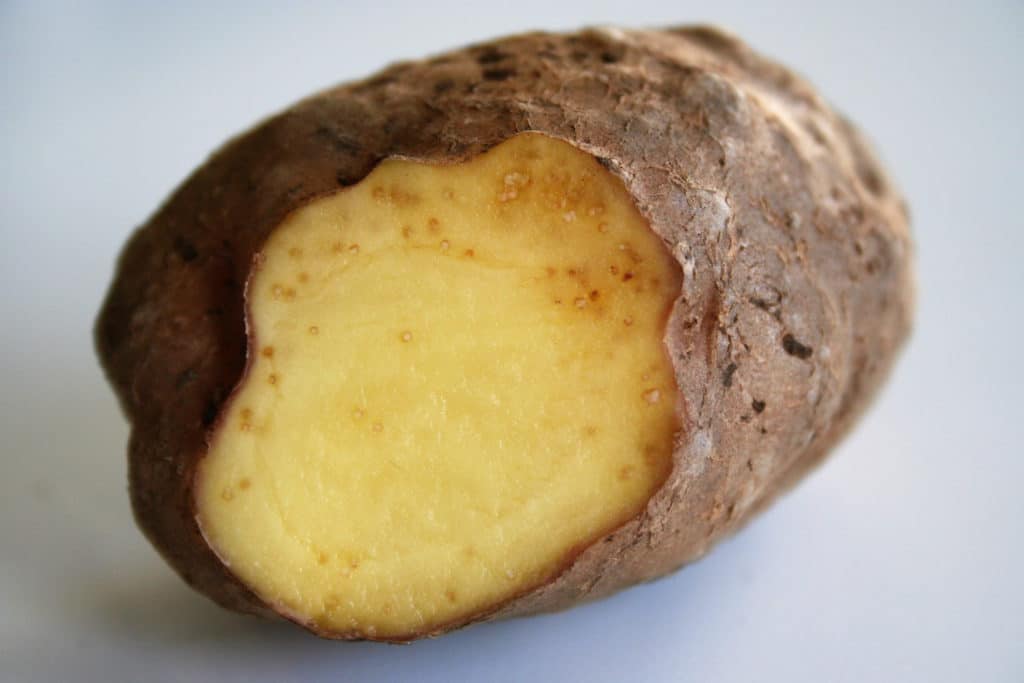
Sugar Beet Variety ‘Redukto’
SESVanderHave, Belgium
The sugar beet variety ‘Redukto’ is combining beet cyst nematode resistance with very strong root-knot nematode resistance. Root-knot nematodes are a specific group of nematodes, and their detection in basic plant material or damage to commercial crops leads to high economic losses. A wide host plant range, including conventional sugar beet and a large variation of weeds, makes it difficult to control them. Currently available control options include black fallow, flooding, and the use of nematicides. Redukto reduces the root-knot nematode populations to levels similar of what can be reached with black fallow without the use of chemicals and without the disadvantages of the above-mentioned techniques. Appropriate use of Redukto in the rotation greatly reduces the potential impact on sensitive crops, helps to sustain rotations, and preserves farmer’s incomes. The variety got registered in the Netherlands in December 2021 and strongly decreases root-knot nematode populations without use of chemicals. Therefore, contributing to a more sustainable agricultural future.
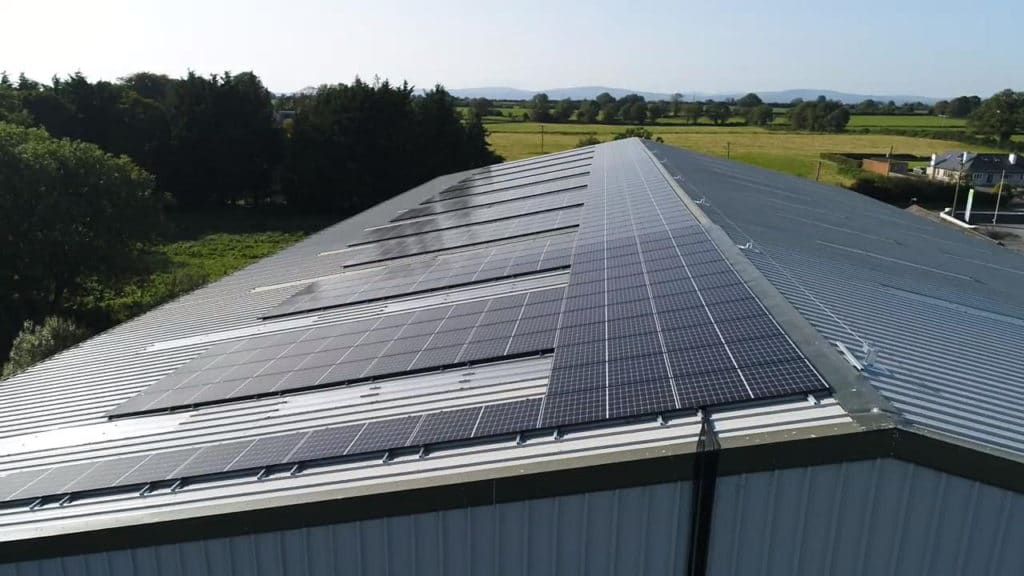
Net Zero By 2050
Germinal Holdings Ltd, UK
Germinal has three targets: 1) Become net-zero by 2040 while meeting an interim target of a 66 per cent reduction from 1990 levels by 2030; 2) Meet the challenges of farming and food production with innovative solutions to help farmers also become net-zero by 2040; 3) Encourage the entire UK agriculture community to exceed government net-zero targets by 2050.
Germinal has made numerous advancements thus far, including transitioning to a fleet of hybrid cars, introducing electric forklift trucks, and implementing waste management systems and recycling in all offices and workspaces. Packaging must be made of recycled materials; solar panels have been fitted on warehouses and much more. Future plans include reducing and eventually ceasing use of print catalogues and literature, installing more power generation technology and using video conferencing where possible to prevent unnecessary travel.
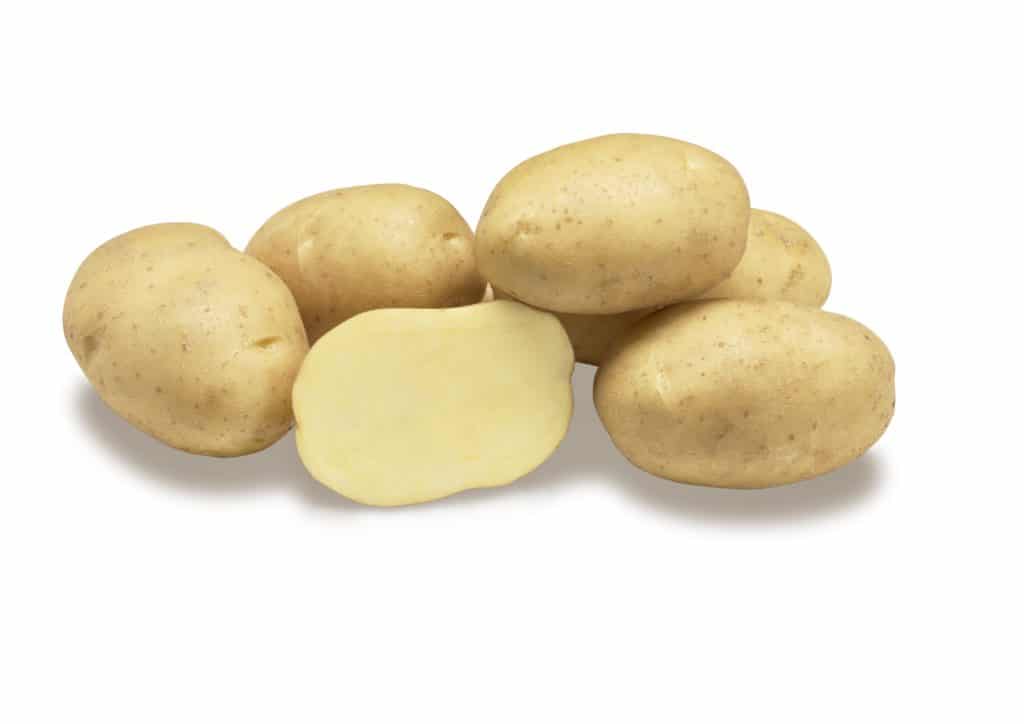
Potato Variety ‘Palace’
Agrico B.V., The Netherlands
Modern potato variety ‘Palace’ is a recent addition to Agrico’s product portfolio. It has excellent consumption properties and is therefore ideal for processing into French fries and flakes. ‘Palace’ is gaining a position in the market for fresh consumption in Southern European countries, but also in the Middle East and North Africa. This is because this variety, even under very dry and warm conditions, produces good yields in uniform batches and has a nice skin and excellent flavour. What makes this variety a significant innovation, is its yield potential at low nitrogen input levels. Field trials show that ‘Palace’ with a low nitrogen application gives a considerably higher yield compared to currently used varieties. An additional yield that immediately shows itself on the potato harvester. This late-ripening variety is therefore very efficient in nitrogen uptake. Considering these advantages and its long shelf life, it can make an important contribution to sustainable food production for both the grower and the food industry and is a step in the right direction when it comes to nitrogen in the environment.
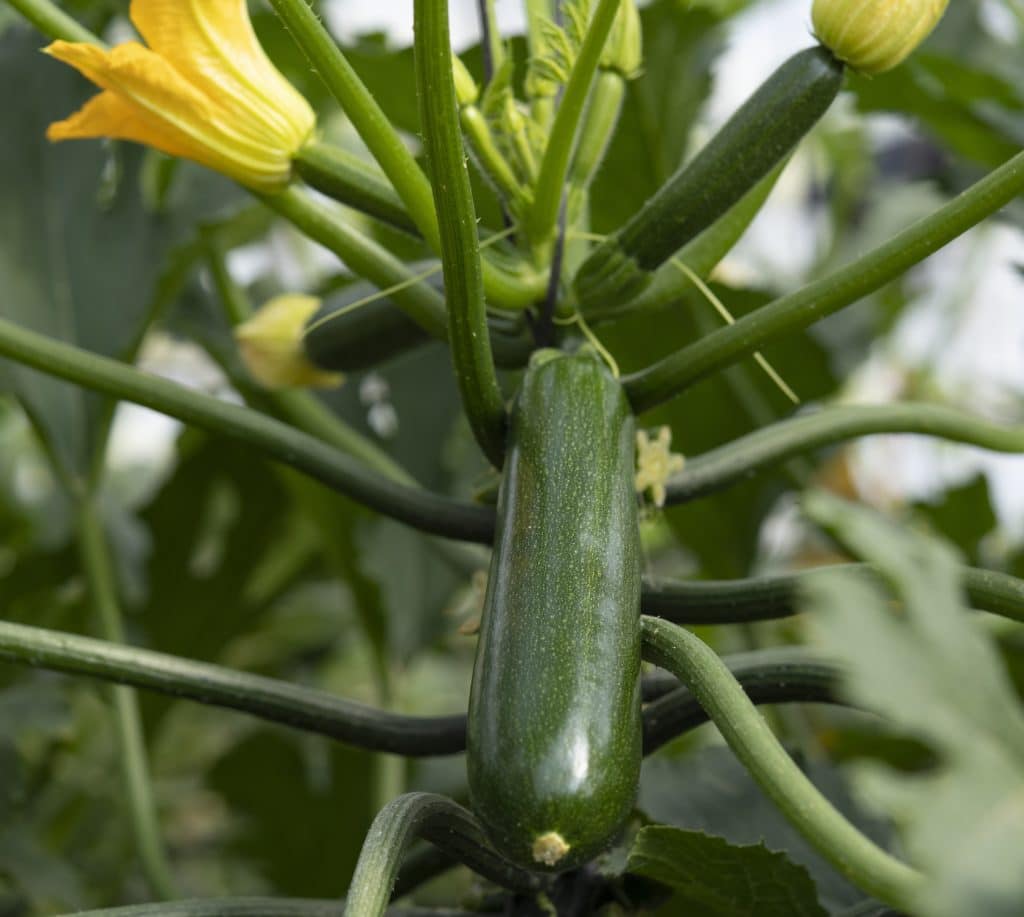
Zucchini Variety ‘Dharma’
HM.CLAUSE, France
‘Dharma’ is the first zucchini variety with resistance to the Tomato Leaf Curl New Delhi Virus (ToLCNDV), which was first observed in Spain in 2013. In two years, the virus had spread to Spain, Italy, Morocco, and most recently, France. The transmission of ToLCNDV can be very rapid in the presence of the vector: the whitefly (Bemisia tabaci). The cool winter temperatures used to decrease vector populations, but with global warming these are no longer enough to decrease the insects. HM.CLAUSE introgressed a virus resistant trait from pumpkin into zucchini, and soon after ‘Dharma’ was born. The breakthrough HM.CLAUSE made with this new genetic resistance, allowed the growers to dramatically limit the use of pesticides to fight whiteflies. As a positive side benefit, pesticides residue risk on fruit almost disappeared as well. Moreover, turnover of plastic barriers and netting significantly reduced with the reduced need for greenhouses to be fully insect proof.
Check Out Other ’20 Most’ Winners:
The 20 Most Innovative Plant Varieties of 2020
20 Most Innovative Breeders in the European Seed Sector in 2019
20 Most Influential People in the European Seed Sector in 2018




